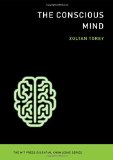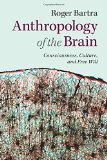August 12, 2014

The Conscious Mind (MIT Press Essential Knowledge) by Zoltan Torey (MIT Press, 2014)
(kindle ed.), (amazon.co.uk), (UK kindle ed.)
Book description from the publisher:
How did the human mind emerge from the collection of neurons that makes up the brain? How did the brain acquire self-awareness, functional autonomy, language, and the ability to think, to understand itself and the world? In this volume in the Essential Knowledge series, Zoltan Torey offers an accessible and concise description of the evolutionary breakthrough that created the human mind. Drawing on insights from evolutionary biology, neuroscience, and linguistics, Torey reconstructs the sequence of events by which Homo erectus became Homo sapiens. He describes the augmented functioning that underpins the emergent mind — a new (“off-line”) internal response system with which the brain accesses itself and then forms a selection mechanism for mentally generated behavior options. This functional breakthrough, Torey argues, explains how the animal brain’s “awareness” became self-accessible and reflective — that is, how the human brain acquired a conscious mind. Consciousness, unlike animal awareness, is not a unitary phenomenon but a composite process. Torey’s account shows how protolanguage evolved into language, how a brain subsystem for the emergent mind was built, and why these developments are opaque to introspection. We experience the brain’s functional autonomy, he argues, as free will. Torey proposes that once life began, consciousness had to emerge — because consciousness is the informational source of the brain’s behavioral response. Consciousness, he argues, is not a newly acquired “quality,” “cosmic principle,” “circuitry arrangement,” or “epiphenomenon,” as others have argued, but an indispensable working component of the living system’s manner of functioning.
Comments (0)
- consciousness,new books

Anthropology of the Brain: Consciousness, Culture, and Free Will by Roger Bartra (Cambridge University Press, 2014)
(kindle ed.), (amazon.co.uk), (UK kindle ed.)
Book description from the publisher:
In this unique exploration of the mysteries of the human brain, Roger Bartra shows that consciousness is a phenomenon that occurs not only in the mind but also in an external network, a symbolic system. He argues that the symbolic systems created by humans in art, language, in cooking or in dress, are the key to understanding human consciousness. Placing culture at the centre of his analysis, Bartra brings together findings from anthropology and cognitive science and offers an original vision of the continuity between the brain and its symbolic environment. The book is essential reading for neurologists, cognitive scientists and anthropologists alike.
Google Books preview:
Comments (0)
- consciousness,culture,new books
August 5, 2014

What We See When We Read by Peter Mendelsund (Vintage, 2014)
(kindle ed.), (amazon.co.uk), (UK kindle ed.)
Book description from the publisher:
A gorgeously unique, fully illustrated exploration into the phenomenology of reading—how we visualize images from reading works of literature, from one of our very best book jacket designers, himself a passionate reader.
What do we see when we read? Did Tolstoy really describe Anna Karenina? Did Melville ever really tell us what, exactly, Ishmael looked like? The collection of fragmented images on a page—a graceful ear there, a stray curl, a hat positioned just so—and other clues and signifiers helps us to create an image of a character. But in fact our sense that we know a character intimately has little to do with our ability to concretely picture our beloved—or reviled—literary figures. In this remarkable work of nonfiction, Knopf’s Associate Art Director Peter Mendelsund combines his profession, as an award-winning designer; his first career, as a classically trained pianist; and his first love, literature—he considers himself first and foremost as a reader—into what is sure to be one of the most provocative and unusual investigations into how we understand the act of reading.
Google Books preview:
See also: Author’s blog
Comments (0)
- new books,reading





